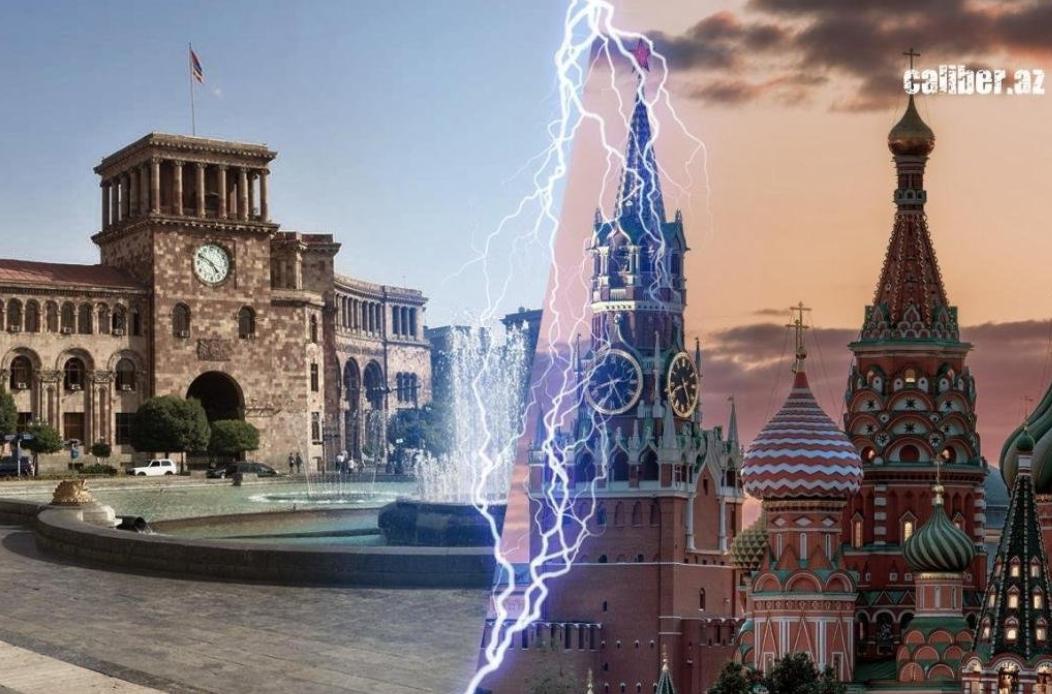Armenia’s turn from Russia Yerevan’s position again displeases Moscow
Armenian Prime Minister Nikol Pashinyan recently drew sharp criticism from Russia with his comments regarding the November 10, 2020, Trilateral Statement. Last week, the Armenian premier stated that under current circumstances, there is no need to return to the agreements reached with Azerbaijan with Russia’s participation in 2020, as that document belongs to the past. “November 9 remains November 9,” Pashinyan said, emphasising that on August 8, 2025, peace was established between Armenia and Azerbaijan, which must be protected. “In September, we will begin discussing details, which, however, cannot contradict the proclaimed principles,” he added, referring to the fact that regional communications, if opened, should remain under the jurisdiction of the countries through which they pass.
Notably, the Armenian prime minister has previously spoken about the need to send the Trilateral Statement into the archives of history. In May 2024, he stated literally: “Not a single point of the November 9 Trilateral Statement is in effect. Take the ninth point, for example. What is it about? There is an attempt to create the impression that this is a point about establishing a connection between Azerbaijan and the Nakhchivan Autonomous Republic. No, that is not the case. It is a point about unblocking economic communications.”
This time, drawing parallels between the two documents, Nikol Pashinyan indicated that from now on all discussions between Yerevan and Baku will be conducted based on the Washington agreements.
Considering that Armenia has long been regarded as Russia’s outpost in the South Caucasus, such statements by the Armenian prime minister represent a direct blow to Moscow’s interests. It is therefore unsurprising that the Kremlin reacted nervously to Pashinyan’s remarks, which signalled that priority is now being given to documents signed on the American negotiation track. Moscow’s displeasure is clearly linked to the fact that the November 2020 Trilateral Statement envisioned the unblocking of transport communications in the South Caucasus specifically under Russia’s control. Accordingly, for Russia, the Washington agreements are seen as an indicator of weakening Russian positions in a region that the Kremlin has always considered within its sphere of influence.
“Involvement of extraregional actors should not fuel conflict potential or create new dividing lines. This approach applies to the unblocking of regional communications,” said Russian Foreign Ministry spokesperson Maria Zakharova at a briefing on August 30. She emphasised that the trilateral agreements between Armenia, Russia, and Azerbaijan, reached in 2020–2022 regarding the unblocking of all communications in the South Caucasus, remain relevant, as none of the parties has withdrawn from them.

Statements from the Russian side suggest that the November 2020 Trilateral Statement takes into account the interests of all regional countries, whereas Western involvement in the negotiation process increases the likelihood of a new conflict in the South Caucasus.
This view is consistently present in the Russian political discourse. In July of this year, Maria Zakharova emphasised at a briefing that the West is trying to remove the Armenia-Azerbaijan normalisation process from its regional context and subordinate it to its own interests: “The Western powers aim to put the Baku-Yerevan reconciliation process on ‘their tracks,’ which could destabilise regional security and undermine the principle of regional self-sufficiency.”
The notion that the West is attempting to push Russia out of the Armenia-Azerbaijan normalisation process has also been repeatedly voiced by Russian Foreign Minister Sergey Lavrov. In November 2024, he highlighted that the West’s desire to sideline Russia from Baku-Yerevan relations heightens security threats in the region and called for the exclusion of external influence on the peace process between Armenia and Azerbaijan, stressing the importance of addressing the issue within the circle of friendly South Caucasus countries and neighbouring partner states. Notably, Lavrov also emphasised that Moscow is not pushing Baku and Yerevan toward a hasty peace agreement.
This raises a number of questions: “How many more decades, according to Moscow, will it take for Armenia and Azerbaijan to sign a peace treaty?”; “Why, like the other co-chair countries of the long-defunct OSCE Minsk Group, did Russia display political indifference in resolving this conflict, limiting itself to declarative calls for peace—not specifically directed at Armenia, but at both sides?”; “Why did Armenia’s occupation of its neighbouring country’s territories in a region under Russia’s patronage, rather than the West’s, not raise security concerns for Moscow at the time?”
Today, as Baku and Yerevan stand on the verge of signing a comprehensive peace treaty, the Russian side is throwing a tantrum over the fact that peace in the region will be established without Moscow’s involvement, frightening anyone it can by recycling the familiar trope of the West as the enemy. It is high time that both official and unofficial figures in Russia understood that a positive outcome of the negotiations does not depend on the position of the West, Moscow, or anyone else, but solely on the political will of the two parties—Azerbaijan and Armenia—and the Armenian side’s willingness to fulfil Baku’s key condition. Only then will all the regional security threats that so concern Russia vanish forever into oblivion.








